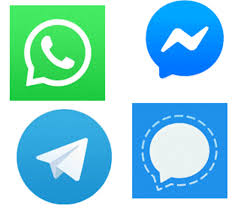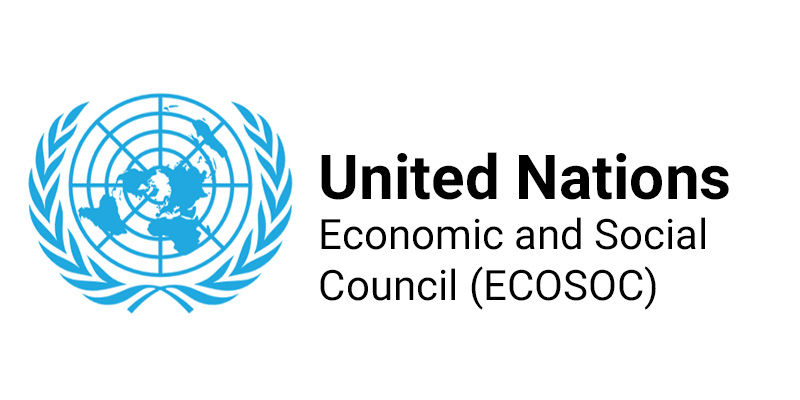Say Goodbye to WhatsApp, Download Signal Messenger
Weighing the various options
 NepalPress
NepalPress

When the founders of WhatsApp, Jan Koum and Brian Acton parted ways with Mark Zuckerberg, the writing was on the wall. Mark Zuckerberg has the instincts of a hacker and privacy has never been a concern of any import with Facebook. So, the recent public downgrading of WhatsApp and the resultant outcry comes as no surprise. While WhatsApp is clearly the largest player in the market, it is now time to seriously consider alternatives for users who are more privacy-minded.
Facebook recently issued a notice within WhatsApp informing users that they need to accept its updated terms of service and privacy policy or lose access to the app from 8 February.
The ultimatum resulted in a backlash against WhatsApp on social media, with many people looking for alternatives to the popular instant messaging app.
Facebook backtracked and has assured that the change only applies to business messaging on WhatsApp, but this hasn’t stopped people from checking out other platforms and more carefully scrutinising the data that Facebook collects through WhatsApp.
Telegram is a popular choice as a WhatsApp alternative due to its rich feature set. Its claims that it is more secure than WhatsApp has also helped drive adoption.
Signal is another alternative that has received a lot of attention after being endorsed by Elon Musk and Edward Snowden.
However, Telegram and Signal are not the only instant messaging apps that offer an alternative to WhatsApp’s dominance.
WeChat, Viber, Kik, Line, and even Google Hangouts or Microsoft’s Skype are options for people who want to use a messaging service outside of the Facebook ecosystem.
This comparison will focus on messaging apps that can be used as a drop-in replacement for WhatsApp and offer equivalent or better security and privacy features.
For that reason we will not be looking at NO PRIVACY ORIENTED Apps like WeChat, Viber, Kik, Line, Hangouts, or Skype as they either do not offer end-to-end encryption or they gather even more of your personal data than WhatsApp does (based on Apple’s App Store privacy labels).
Security vs privacy
First, it is necessary to make a distinction between a messenger’s security features and its privacy policy.
WhatsApp offers exemplary security, including:
- End-to-end encryption by default using the Signal Protocol — the same encryption scheme as Signal.
- Only holding encrypted messages for as long as it takes to deliver them, then deleting the messages from their servers.
WhatsApp’s main weakness security-wise is the way it handles cloud backups for your messages. If you choose to enable cloud backups, your messages are either stored on Google’s servers (on Android), or Apple’s (on iPhone) and you rely on whatever encryption they use.
Privacy-wise, WhatsApp is the weakest of the three apps compared in this article.
WhatsApp gathers much more personally-identifying information than Telegram and Signal. It is also part of the Facebook ecosystem and there are legitimate concerns over the amount of data that might be shared between WhatsApp and Facebook’s other services.
When it comes to security, Telegram takes an entirely different approach to WhatsApp and Signal:
- Chats are not end-to-end encrypted by default. Optional secret chats are available.
- Telegram has rolled its own encryption algorithm rather than using standard industry-recognised schemes. Information security professionals warn that this is dangerous as the protocol has not been vetted by people outside Telegram.
- Messages are stored on Telegram’s servers where you can access them via various client apps at the same time (e.g. smartphone, PC, tablet).
- You can choose not to expose your phone number in Telegram.
- Telegram notifies you when contacts sign up to the app. Signal does this too.
Messaging app feature comparison – WhatsApp vs Telegram vs Signal
Ignoring Facebook’s insatiable need for ever more user data for the moment, let’s focus on the key technical and design differences between WhatsApp, Telegram, and Signal:
| WhatsApp vs Telegram vs Signal | |||
|---|---|---|---|
| Feature | Telegram | Signal | |
| End-to-end encryption | Yes (Signal Protocol) | Only in secret chats (MTProto) | Yes (Signal Protocol) |
| Group chats | Max. 256 people | Max. 200,000 people | Max. 1,000 people |
| Voice calls | Yes | Yes | Yes |
| Video calls | Yes | Yes | Yes |
| Group voice calls | Max. 8 people | Thousands of people | Max. 5 people now increased to 8 |
| Group video calls | Max. 8 people | Not yet available | Max. 5 people |
| User ID | Phone number only | Phone number or username | Phone number only |
| Cloud storage / backups | Backups to Google or Apple servers available | Encrypted messages stored on Telegram servers. Telegram has keys to decrypt them. | None / Manual backups only |
Messaging app privacy labels in the Apple App Store
Apple recently rolled out App Privacy Labels on the App Store, requiring developers to disclose what information they are gathering about users and how they intend to use it.
According to these labels, WhatsApp collects a significant amount of data which may be linked to your identity.
The data it collects is divided into several categories: developer’s advertising or marketing, analytics, product personalisation, app functionality, and other purposes.
For advertising and marketing, WhatsApp only uses your device ID and advertising-related usage data.
Most of the data collected is used for analytics and app functionality, according to the list.
Data gathered for analytics includes: purchase history, approximate location, phone number, “other user content” (i.e. not messages, photos, videos, or audio data), user ID, device ID, product interaction usage data, advertising-related usage data, and various diagnostic data.
Telegram only uses the data it gathers for app functionality purposes, according to its App Privacy Labels.
Signal gathers no data that is used to personally identify you. While it uses your phone number, it is never linked to your identity.
The table below summarises the App Privacy Labels for WhatsApp, Telegram, and Signal. For the sake of simplicity, all data that is gathered to personally identify you is shown, regardless of how it is used.
| Privacy Details | |||
|---|---|---|---|
| Data | Telegram | Signal | |
| Identifiers | Device ID User ID |
User ID | No data linked to your identity |
| Contact info | Phone number
Email address |
Phone number
Name |
|
| Contacts | Contacts | Contacts | |
| Usage data | Advertising data Product interaction |
||
| Purchases | Purchase history | ||
| Location | Coarse location | ||
| User content | Other (not messages, photos, or audio data) | ||
| Diagnostics | Crash data
Performance data Other |
||
(Online Sources)














